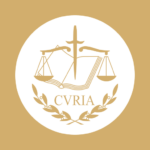Access to the official webpage and social networks
 |
 |
 |
Role: To check EU funds are collected and used correctly, and help improve EU financial management.
Members: 1 from each EU country
President: Klaus-Heiner Lehne
Year established: 1997
Location: Luxembourg
As the EU’s independent external auditor, the European Court of Auditors (ECA) looks after the interests of EU taxpayers. It does not have legal powers, but works to improve the European Commission’s management of the EU budget and reports on EU finances.
What does the ECA do?
- audits EU revenue & expenditure, to check EU funds are correctly raised, spent, achieve value for money and accounted for
- checks any person or organisation handling EU funds – including spot checks in EU institutions (especially the Commission), EU countries and countries receiving EU aid
- writes up findings and recommendations in audit reports, for the European Commission and national governments
- reports suspected fraud, corruption or other illegal activity to the European Anti-Fraud Office (OLAF)
- produces an annual report for the European Parliament and Council of the EU, which the Parliament examines before deciding whether to approve the Commission’s handling of the EU budget
- gives its expert opinion to EU policymakers on how EU finances could be better managed and made more accountable to citizens
Also publishes opinions on preparatory legislation that will impact EU financial management, as well as position papers, reviews and ad hoc publications on EU public finance issues.
To be effective, the Court must be independent of the institutions and bodies it audits. To this end, it is free to decide on:
- what it will audit
- how to do this
- how & when to present its findings
The Court’s audit work focuses mainly on the European Commission – the main body responsible for implementing the EU budget. But it also works closely with national authorities, because the Commission manages most EU funds (around 80%) jointly with them.
Composition
Court members are appointed by the Council, after consulting the Parliament, for renewable 6-year terms. They choose one of their number as President for a 3-year term (also renewable).
How does the ECA work?
It carries out 3 types of audit:
- Financial audits – checking that accounts accurately present the financial position, results and cash flow for the year.
- Compliance audits – checking that financial transactions follow the rules.
- Performance audits – checking that the EU funds achieve its goals with the fewest possible resources and in the most economical manner.
The Court is divided into audit groups called ‘chambers‘. They prepare reports & opinions for the Court members to adopt, thus making them official.







Leave a Reply